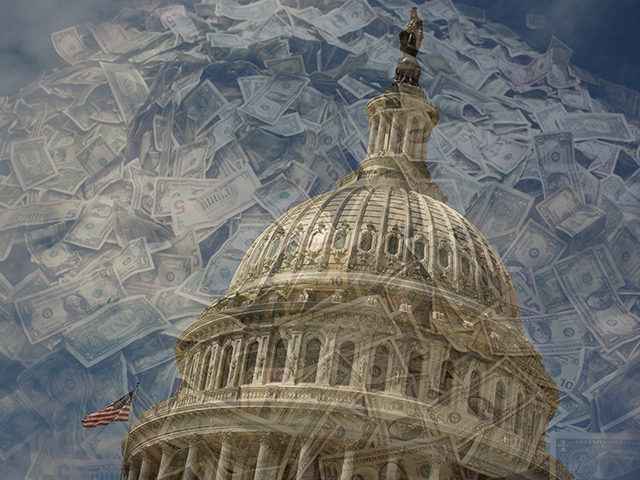The Committee for a Responsible Federal Budget wrote in an analysis Monday that the Democrats’ coronavirus bill contains at least $312 billion in policies unrelated to the coronavirus.
The Committee released an analysis of the House coronavirus bill, stating that it:
…is much larger than the needs of the economy, much of its spending is poorly targeted, it includes a number of measures unrelated to the COVID pandemic and economic crisis, and it would abruptly cut off aid to unemployed workers at the end of August.
The nonpartisan think tank noted that the bill contains “at least $312 billion of policies that have little to do with the current crisis.”
“Among the unrelated provisions are a pension bailout; expansions of the Child Tax Credit (CTC), the Earned Income Tax Credit (EITC), and the child care tax credit; an increase in the minimum wage to $15 an hour; and Affordable Care Act (ACA) expansions,” the Committee wrote.
The nonprofit wrote that since these policies are unrelated to addressing the coronavirus pandemic, they “should be subject to normal pay-as-you-go [PAYGO] rules, which means each policy should either be fully offset with new revenue or spending reductions to cover its cost.”
House Democrats established a rule in January that eliminated PAYGO restrictions on coronavirus spending and climate change-related spending, making it easier to spend on these issues without establishing budgetary offsets.
The unrelated policies in the coronavirus bill include:
- $110 billion expansion of the Child Tax Credit. The bill would increase the tax credit from $2,000 to $3,000 and make it fully refundable for one year.
- $23 billion expansion of the Earned Income tax Credit to childless adults for one year. The proposal would expand the tax credit, including those aged 19-24 years-old and over 65 years-old.
- $8 billion expansion of the Child Care and Dependent Care Tax Credit to $4,000, or $8,000 for two or more children, for one year.
- A $58 billion provision giving grants to multi-employer pension plans and changes single-employer pension funding rules.
- A $54 billion provision expanding the federal minimum wage to $15 per hour by 2025.
- A $34 billion expansion of Affordable Care Act (ACA) subsidies to reduce the maximum cost of insurance plans.
- A $16 billion increase of the base Medicaid match rates to states that recently expanded Medicaid under the ACA.
- A $9 billion provision allowing states to expand Medicaid coverage for prisoners close to release and for pregnant and postpartum women for five years.
The Committee also noted that Congress could save billions of dollars by reducing other policies in the bill, such as:
- Reducing state and local government aid from $350 billion to $100 billion and aid to public schools from $100 to $70 billion.
- Gradually tapering unemployment benefits.
The Committee noted that while relief is needed to alleviate the effects of the coronavirus, the Democrat bill “would spend too much and would poorly target most of its spending relative to actual needs.”
Sean Moran is a congressional reporter for Breitbart News. Follow him on Twitter @SeanMoran3.

COMMENTS
Please let us know if you're having issues with commenting.